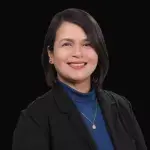Skip to main content







Buy Now
Click HereIn 2021, the Lockton Kaagapay Program (LKP) was developed to address the most basic but oftentimes overlooked protection needs of Filipinos. For only Php 120 per year, LKP provides comprehensive coverage product with 8 benefits.

Comprehensive and cost-efficient coverage with 8 protection benefits
In 2021, the Lockton Kaagapay Program (LKP) was developed to address the most basic but oftentimes overlooked protection needs of Filipinos. For only Php 120 per year, LKP provides comprehensive coverage product with 8 benefits.

Inclusion
Accidental death
Ambulance benefit
Accidental disablement and dismemberment
Accident and sickness cash assistance
Fire/lightning cash assistance
Motorcycling benefit
Natural death
Unprovoked murder and assault
Meet our Microinsurance Team
Nino Sauler
Senior Vice President
Nino.Sauler@lockton.com
+63 917 545 1463
Hanica Bayaborda See
Vice President, Client Services & Relationship Management
Hanica.Bayaborda@lockton.com
Brian C. Fontanilla
Senior Manager, Deputy Head, Client Services
Brian.Fontanilla@lockton.com
+639175294601
Hye-Won "Eunice" Park
Vice President, Korean Accounts
Eunice.Park@lockton.com
Get in touch
News and Insights
Personalization and Digitalization: Rethinking Flexible Benefits for a Multigenerational Workforce
articleHR leaders today are navigating the complex expectations of a workforce spanning four generations—Baby Boomers, Gen X, Millennials, and Gen Z. Each group brings distinct preferences when it comes to employee benefits, making a one-size-fits-all approach increa ...
Sign up to our Newsletter
Stay informed about emerging risks and how to address them with our latest thought leadership content.
Register now

